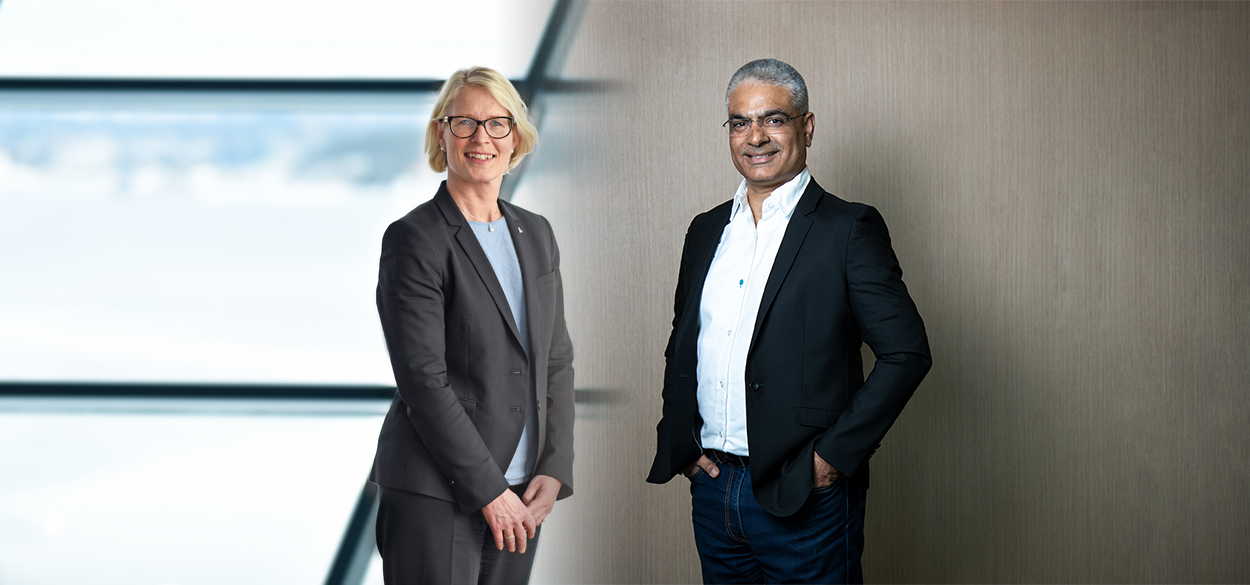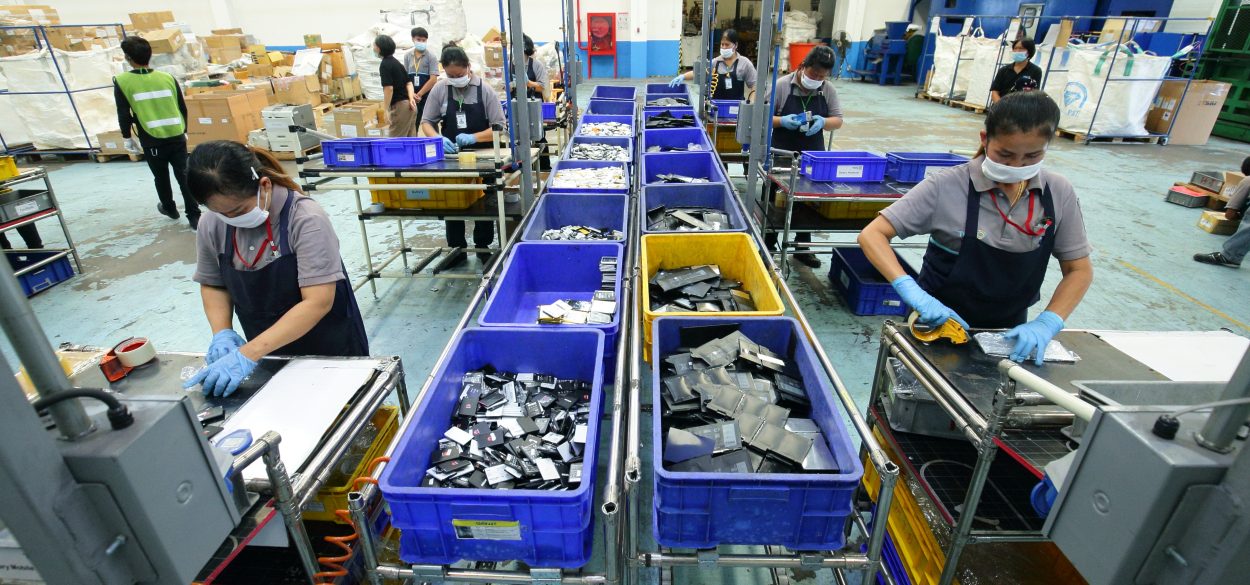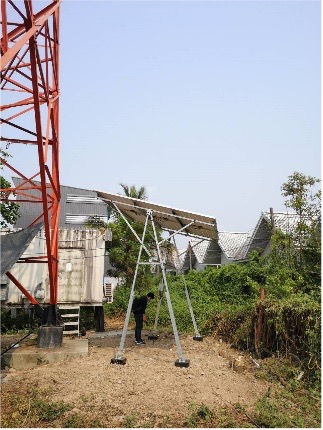
Early IoT wins can pave the way for smarter and greener telecom industry in Thailand
Safeguard
Safeguarding planet, people and data in the digital world and beyond
Safeguard means that Telenor constantly raises the bar for the safety, security and privacy for our customers, partners and employees, as well as the health of our planet to drive positive, long-term change.
Precision cooling, e-waste collection, and solar panels are part of dtac’s plan to reduce its greenhouse gas emissions by 50 per cent.
Thailand is critically exposed to the impact of climate change. Rising sea levels threaten the communities along its 3,200 km of coastline, including the 10 million inhabitants of Bangkok. Every year, cycles of drought and flooding destroy lives and properties while endangering the livelihoods of almost one in three workers involved in Thai agriculture. Thailand ratified the Paris Agreement and committed to reduce its greenhouse gas emissions by 20-25 percent within 2030, but to reach this ambition, it would require doubling domestic renewable energy production. dtac has set ambitious targets to halve its greenhouse gas emissions by 2030 to support national efforts.
To understand how that goal can be met, Cecilie Heuch, EVP and Chief People and Sustainability Officer at Telenor Group, spoke to Sharad Mehrotra, CEO of dtac, about the companies climate policies.

Cecilie: Hi Sharad! Can you tell me a bit more about what dtac is doing to reach Telenor’s 2030 climate ambitions?
Sharad: It starts by being the most efficient telco operator in Thailand – and the most advanced – particularly in network operations, which accounts for 94 per cent of dtac’s energy consumption. We’ve already been able to reduce our core network centres from six to two nationwide. And with the adoption of precision cooling, we achieved a 32 per cent reduction in energy consumption at the two centres. There is still a long way to go, but these early wins are proof that real-time monitoring using the Internet of Things can transform energy usage in Thailand. In fact, we’re also in the early stages of helping industrial partners in the logistics, banking, and energy sectors to develop energy efficient solutions.
dtac is also committed to zero landfill waste disposal by 2022. Although we have a consumer-facing engagement to collect e-waste in our shops, 80 percent of dtac’s e-waste is from network operations. The key here is to work closely with our e-waste disposal partners to ensure that our waste is properly processed. This has the potential to greatly reduce methane emissions, which are 25 times more potent than carbon dioxide at trapping heat in the atmosphere.
The third area of exploration is renewable energy, which is particularly challenging. There’s a severe lack of renewable energy sources in Thailand, so dtac is conducting a pilot project on using solar panels at both core network centres as well as some cell sites. This won’t be enough to meet our targets, though, so we will also work with large industrial partners who have the scale to provide solutions nationwide.

Cecilie: What is the opinion on climate change by customers in Thailand, and how is dtac responding to these opinions and expectations?
Sharad: There’s a bit of a gap between the general public and the opinion leaders. The Thai public at large is awakening to the issue, meaning that their focus is currently on the energy and natural resources industries. They don’t really see mobile operators as core to having an impact on climate change.
But informed opinion leaders are increasingly looking to other industries and holding them accountable. When dtac drives a dialogue about climate, we are perceived as being forward leaning, which is good as we want to create awareness on the climate crisis and contribute positively to this agenda. We are recognised as playing a role in educating and helping people see how climate change is everyone’s responsibility.

Cecilie: What do you believe is needed from the telecom industry in general to achieve the UN’s 2030 climate goals?
Sharad: Collaboration is essential to reaching the UN’s 2030 climate goals. With 5G and IoT, mobile operators can support businesses to be more efficient in their operations—particularly in the energy, manufacturing, and logistics sectors. Likewise, industrial partners can help us access more sources of renewable energy, operate more efficiently, and better dispose of waste.
Secondly, the telecom industry must be united in its climate change standards. How we design the infrastructure, our procurement policies—all these criteria can be aligned at an industry level to trigger more rapid changes.
Thirdly, the industry needs to grab the attention of those most willing to change. We need to inspire our customers with our climate change ambitions. It’s my personal belief that Gen Z and millennials must be recruited in this effort because they really care about this topic. They are conscious consumers who don’t need incentives to do the right thing. The challenge is for our industry to grab their attention with a bold enough platform for change.